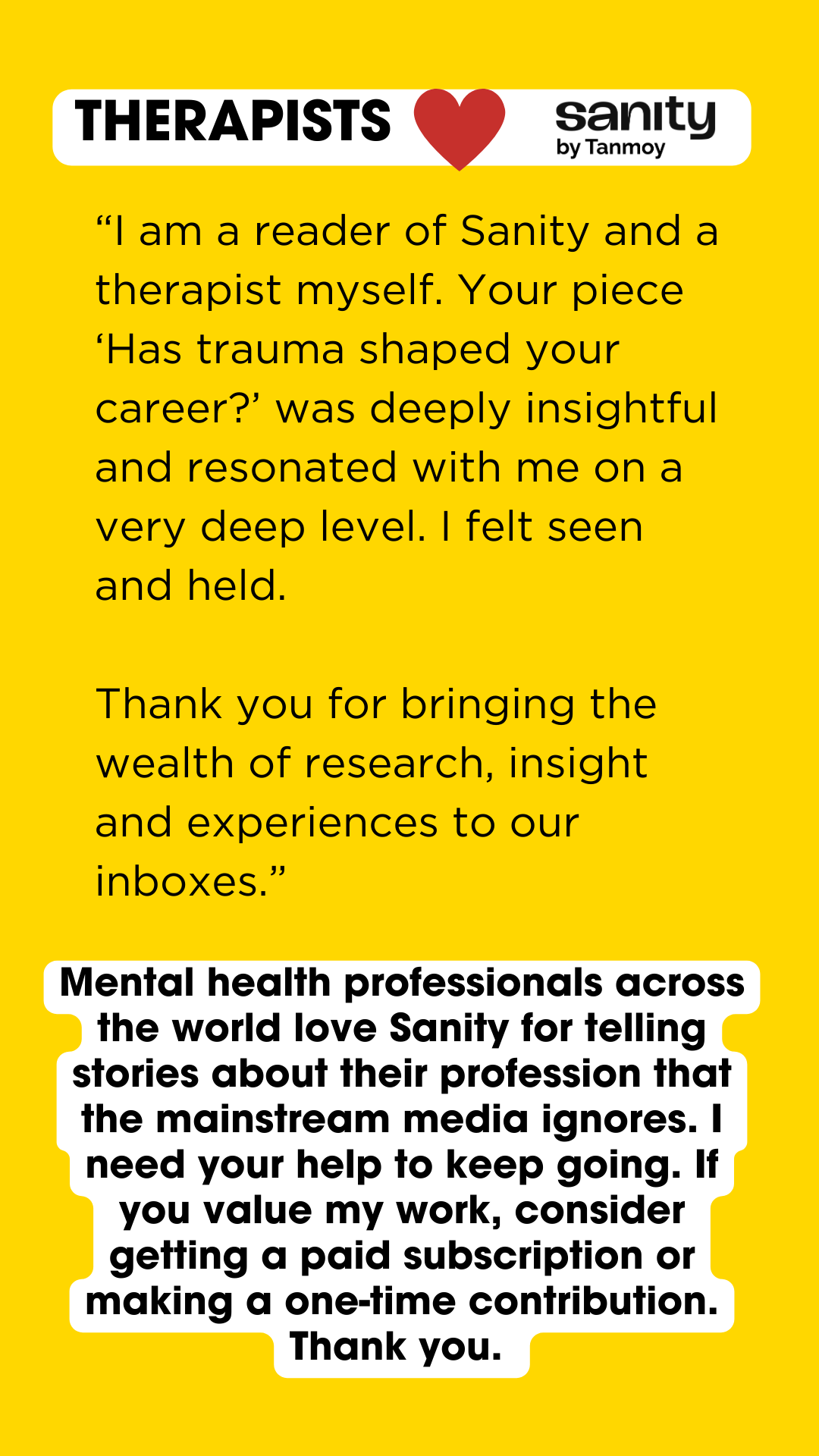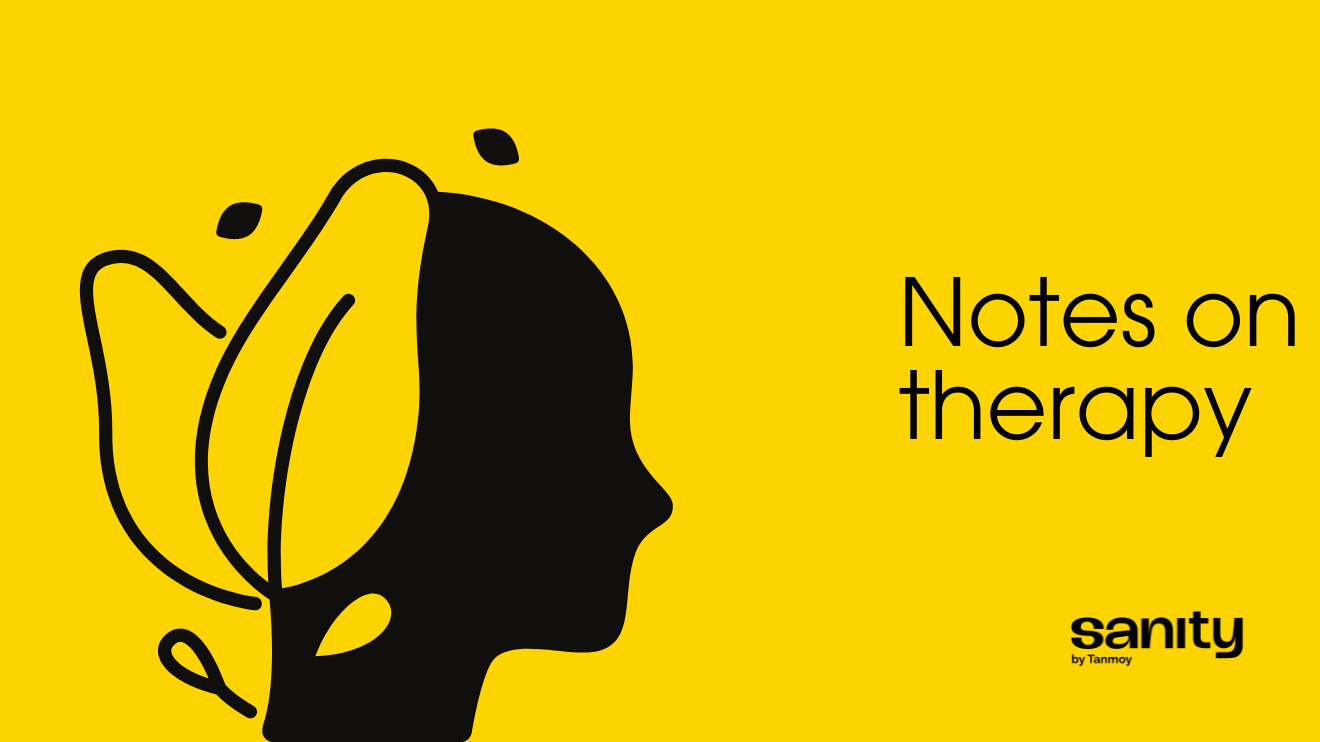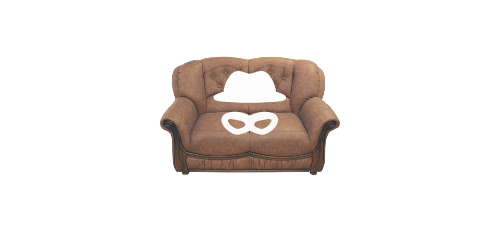🗝️ Sanity Classics: "I don't trust therapists because they 'hijack' my patients."
My bizarre encounter with a small-town psychiatrist.


Did you know that the US has an office dedicated to tracking UFOs, or unidentified flying objects? It's the kind of thing rich countries can afford while simultaneously smirking at the absurdity of it.
Psychiatry clinics in small Indian towns are a bit like the UFO office. Indulgent, absurd, dealing in strange aliens.
I had this epiphany after an encounter with a psychiatrist in a small town.
Big-city folk, especially those involved in mental health advocacy and aware of everything that is broken in the current mental healthcare system often complain about psychiatry's overdependence on pills.
You ain't seen nothin'.
Come to the small town that my story is set in, and you will realise 'mental health' is spelt P-I-L-L-S.
What did you say? What about therapy? Hehe, you joking?!

Read all my stories on therapy
So, I meet this psychiatrist in a busy private hospital. I'm with a senior citizen who has been complaining of anxiety. The psychiatrist is a bit miffed we didn't come on the day of his 'special OPD'.
“Today I have too much admin work,” he says. I'm later told the special OPD fee is much higher.
He looks at the case history for a long time, then asks the patient how they are feeling.
“Can't get the negative thoughts out of my head doctor,” they say.
“Last time your hands shook and your mouth was dry. How's that now?”
“My mouth still gets dry. But it's those thoughts...”
He stares at the last prescription again.
“I had stopped this pill and given a new one, did that help with the tremors?”
“Yes doctor, the tremors are gone.”
“Stretch your hands. Yes, good. And the bad thoughts? Are you able to control them?”
“No doctor, like I said...”
More staring at the prescription follows.
Then, the psychiatrist says:
“All right, I am stopping one pill and adding another new one. That should help with the dry mouth.”
“But what about the bad thoughts doctor? It's like my mind rushes towards the worst possible ideas. I try to distract myself with work, but I just can't.”
Silence follows, again.
If you have ever been on pills for a mental health condition, you may know that psychiatry is often a game of playing symptoms and side effects off each other.
That’s what makes psychiatric medication so controversial — sometimes, especially in the early days of treatment, they could seem to create more problems than they resolve.
If you are stuck in this regime for long and the side effects persist for long, you might end up forgetting what you originally sought treatment for.
Over the 12 months the person I was accompanying was under psychiatric treatment, side effects came and went like a revolving door. Stiffness. Slurry speech. Nightmares. Dry mouth. Shaky limbs. Elevated cholesterol.
Sounds horrifying, but as someone who has been popping pills regularly for several years, I wasn’t shocked.
Anyway, so most meetings this particular patient had with the doctor ended up becoming all about replacing some pills with some others, in the hope that the side effects will stop.
The original malaise — mental distress — was discussed only in the passing.
Today that same absurd script was playing out again.

So at this point, I decide to speak.
“Doctor, may I ask a question? Since you've been seeing the patient for a few months now, do you think talk therapy might help?”
“What therapy?”
“Talk therapy. I mean psychotherapy?”






